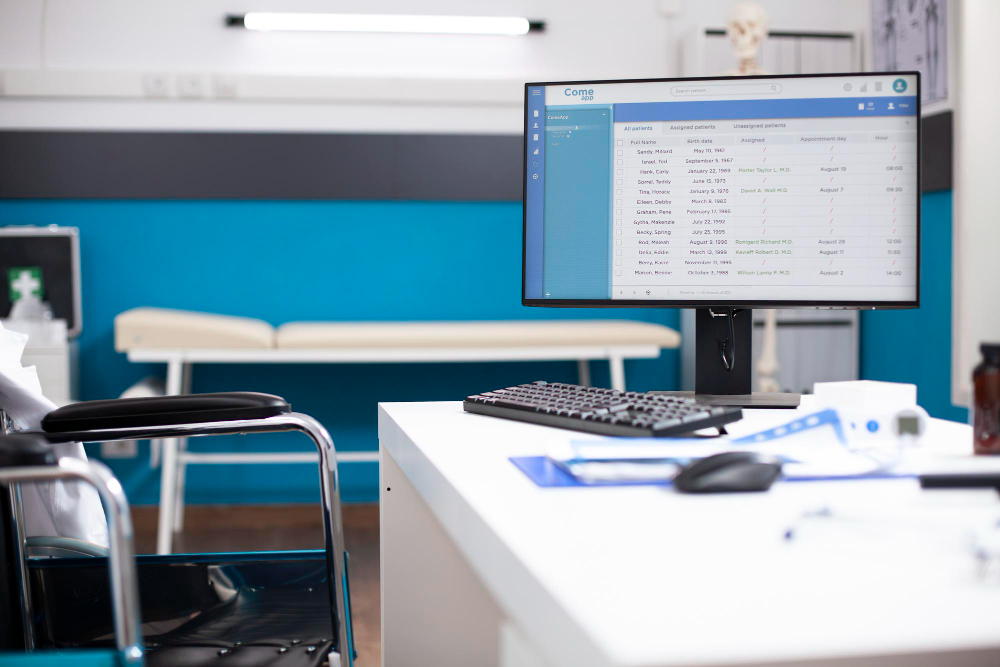Nigeria's Data Protection Laws: NDPA & the National Health Act
In today's Nigerian hospitals, patient information no longer lives only in paper folders. It sits in EMRs, billing systems, lab analyzers, imaging archives, and-too often-on shared on mobile phones. That convenience creates risk. Cybercriminals target health data, and one of the ways patients judge care quality by how safely their information is handled. Two national laws, though grossly insufficient set the ground rules: the Nigeria Data Protection Act (NDPA) 2023 and the National Health Act (NHAct) 2014. They matter for every hospital, clinic, HMO, and health-tech firm. This guide explains what they require, where they fall short for healthcare, and what leaders should do next.
Why Patient Data Needs Extra Protection
Health data is deeply personal. A single leak can expose someone's HIV status, reproductive health, or mental health history-leading to stigma, discrimination, or blackmail. For clinicians, confidentiality is a professional duty; for institutions, it is a trust contract with the community. A breach opens health facility to fines and bad headlines, it disrupts services, delays treatment, and increases clinical risk. That's why Nigerian law requires stronger safeguards for patient information and why hospital leaders must treat data protection like patient safety.
The Nigeria Data Protection Act (NDPA) 2023: Core Duties for Hospitals
The NDPA is Nigeria's overarching privacy law. It applies across the public and private sector and explicitly classifies health information as sensitive personal data. For healthcare providers, five obligations are critical:
- Lawful basis & explicit consent: Collect and process patient data only for clear, legitimate purposes. For sensitive health data, obtain explicit consent (or rely on other lawful bases available in clinical, legal, or public interest contexts where appropriate). This is already the default in most, if not all health facilities today, as permission is often taken when history is collected.
- Data minimization & purpose limitation: Gather only what is necessary for diagnosis, treatment, billing, quality assurance, etc, and avoid using it later for unrelated purposes. This line is quite blurry in the real setting, as seemingly unimportant information can change the course of diagnosis.
- Security safeguards: Implement technical and organizational controls-access control, encryption, logging, multi-factor authentication, vendor oversight, and secure disposal of data and devices.
- Rights & transparency: Provide clear privacy notices, honor patient rights (access, correction, deletion where applicable), and document decisions about data use.
- Breach response & governance: Detect, contain, assess, and notify when a breach risks harm. Appoint a Data Protection Officer (DPO) or named lead to oversee compliance and liaise with authorities.
The National Health Act (2014): Confidentiality & Record-Handling
The NHAct is healthcare-specific in scope, but high-level in detail. It establishes the duty of confidentiality for health information and expects providers to keep accurate, secure records. In practice, it means:
- Confidentiality is mandatory: Patient information may be shared only with the patient's consent or under limited legal/clinical exceptions (e.g., public health reporting, court orders).
- Access control: Only authorized staff should view or handle medical records; casual access or “shared logins” undermines compliance and auditability.
- Secure record-keeping: Providers must maintain reliable, leak-resistant systems for storing and transferring records, whether paper or electronic.
- Accountability: Failures can trigger regulatory sanctions and professional consequences for individuals involved.
How NDPA & NHAct Work Together, And Where They Fall Short
Think of the NDPA as the national privacy rulebook and the NHAct as the healthcare conduct rulebook. Together, they require consent, confidentiality, secure storage, transparency, and breach response. However, both are broad and not tailored to the realities of modern healthcare. Critical gaps remain:
- No clinical-grade technical standards: There is no detailed national specification for EMR security (e.g., encryption-at-rest expectations, audit log content and retention, session timeout defaults, or change-control).
- Limited guidance for digital health: Telemedicine, remote monitoring, cloud-hosted records, and mobile health apps lack sector-specific rules on data flows, vendor due diligence, and data residency.
- Interoperability & data sharing: There is no health-specific framework for secure data exchange between public/private hospitals, labs, HMOs, and research bodies.
- Secondary use & research: Consent models and governance for research, analytics, and AI training need healthcare-focused guidance to protect patients while enabling innovation.
Bottom line: NDPA + NHAct provide the foundation, but Nigeria needs healthcare-specific data regulations, driven by the Federal Ministry of Health to close these gaps and align with international best practice.
Practical Compliance Steps Hospitals Can Implement Now
Even while waiting for sector-specific rules, hospitals can meaningfully reduce risk and meet current legal duties. Start with the essentials and build maturity systematically:
- Map your data: Conduct a data inventory and workflow audit. What patient data you collect, where it lives (EMR, LIS, PACS, backups, mobile devices), who accesses it, and which vendors process it.
- Appoint a DPO/compliance lead: Give clear responsibility for policy, training, risk assessment, incident handling, and regulator liaison; ensure board-level sponsorship.
- Harden access controls: Enforce strong, unique passwords; enable MFA; remove shared accounts; set automatic logouts; apply least-privilege access; review access quarterly.
- Strengthen the EMR environment: Patch OS/apps/firmware, encrypt disks and backups, separate clinical and guest networks, enable audit logs and alerting, and restrict USB use.
- Test, Test, Test Policies and technology alone are not enough. Hospitals must regularly test their systems through cybersecurity assessments such as penetration testing, vulnerability scanning, and red-team exercises. These tests reveal hidden weaknesses before attackers do. Think of it like a fire drill for your systems: the only way to know your defenses work is to put them to the test.
- Disaster readiness: Maintain an incident playbook (isolate systems, preserve evidence, triage clinical impact), define roles, test with tabletop exercises, and rehearse communications to patients and authorities.
- Backup & recovery: Follow the 3-2-1 rule (three copies, two media, one offsite/offline), test restores monthly, and prioritize clinical systems (EMR/LIS/PACS) in recovery plans.
- Vendor & cloud oversight: Sign data processing agreements; verify security certifications; set breach notification timelines; check data location and backup/restore guarantees.
- Consent & transparency: Use plain-language privacy notices; capture explicit consent where required; document lawful bases; provide mechanisms for patient access/correction.
- Training & culture: Run quarterly awareness for clinicians and admin staff: login hygiene, phishing awareness, safe messaging (no patient PII on WhatsApp), and device security.
- Document everything: Policies, DPIAs (risk assessments for high-risk processing), training logs, vendor due diligence, and breach reports-documentation is part of compliance.
A Policy Note to Regulators & the FMoH
Nigeria would benefit from healthcare-specific data protection regulations under the leadership of the Federal Ministry of Health. Priorities could include:
- Minimum security standards for EMRs, e-prescribing, LIS/PACS, and connected medical devices (encryption, logs, MFA, segmentation, patching).
- Guidance on telemedicine, mobile health, and cloud hosting (data residency, cross-border transfers, uptime, incident SLAs).
- Frameworks for interoperability and secure data exchange between public/private providers and HMOs.
- Clear rules for secondary use: research, public health analytics, and AI, balancing innovation with privacy.
- Sector-specific breach thresholds, escalation routes, and coordinated incident response across facilities.
Such rules would protect patients, give hospitals clarity, and build public trust, while enabling responsible digital health innovation across Nigeria and West Africa.
Clarensec's Perspective
Clarensec helps healthcare providers turn legal requirements into daily practice-through compliance gap assessments, policy development, staff training, and technical hardening (including penetration testing and incident readiness). Our goal is practical resilience: keep patient data safe, keep services running, and build trust with your community.
Key Takeaways for Healthcare Leaders
- NDPA + NHAct are mandatory for all hospitals handling patient data; covering consent, confidentiality, security, and breach response.
- The laws are broad, not clinical-grade, and leave gaps for EMR security, telemedicine, interoperability, and secondary use.
- Act now on fundamentals: data mapping, DPO, access control, training, vendor oversight, backups, and a tested incident plan.
- Advocate for sector-specific rules: the Federal Ministry of Health should lead the development of healthcare data standards with the national data protection authority.
- Make this culture: leadership sets the tone-privacy and security are part of patient safety, not just IT tasks.
Protecting patient data is both a legal and a moral obligation. By closing today's gaps with disciplined practice, and by pushing for healthcare-specific rules, Nigeria can deliver safe, trusted, and modern care.



